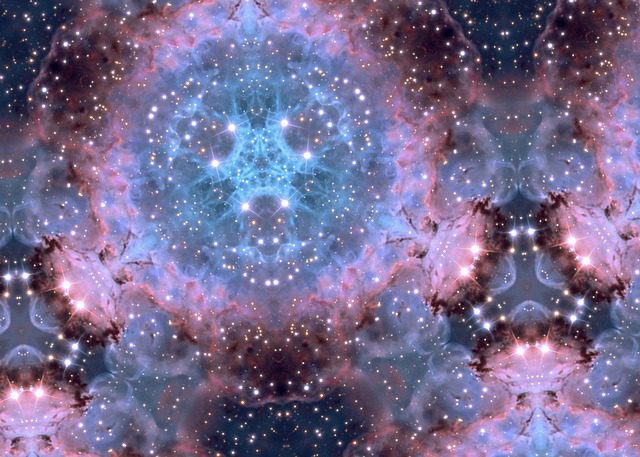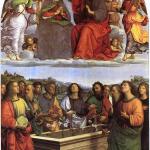
This is a follow-up to “Predestination and Salvation: Q & A with an Atheist”. Words of atheist Grimlock will be in blue.
*****
[replying to my answers to his #1 and #2 questions in the previous exchange] If I’ve understood it correctly, your position is something like this: God created everything, including free beings. God also knows whether a being will end up in Hell, yet still created everything so that those beings would exist.
Yet what I struggle with is how this differs in any significant ways from God predestines someone to Hell. In either case God knowingly creates beings that ends up in eternal suffering.
- I know that the sun will come up tomorrow.
- I know that tomorrow, someone will die in a car accident, or of cancer.
- I know that my daughter will text her friends tomorrow.
- I know that, tomorrow, Hillary Clinton will offer Reason #41,390 for why she lost the 2016 US presidential election. Poor thing . . .
- I know that our beloved guinea pig will pee in her cage tomorrow.
*
It doesn’t follow from any of this [virtually certain] “knowledge,” that I caused any of these five things. You seem to be confusing knowledge with causation. God knowing that someone is to wind up in hell doesn’t mean that He caused it (let alone predestined it from all eternity).
One could argue, I guess, that in the case of your view, God merely creates a system which has regularities that unfortunately has the consequence of some people ended up in Hell.
Yes: the cause of that (according to the Bible, and Catholic and Orthodox and non-Calvinist Protestant theology and philosophy) is the free will choices of human beings to accept God and His grace and mercy for salvation, or, conversely, to reject same.
Whereas on the Calvinistic view (which I hope I’m not misrepresenting too badly here), God knowingly focuses on individuals and decides that these people are going to Hell. This seems plausible when applied to, for instance, human politics, but the distinction seems irrelevant when considering an omnipotent and omniscient God. This is because such a God would inevitably know which specific individuals are the “victims” in a certain system. Is there something I’m missing?
Calvinists argue that the whole human race fell and are in rebellion against God. This is original sin, and other Christians fully agree, so far (though the Calvinist degree of fallenness is higher: what is called total depravity). Calvinists then contend that God in His mercy selects from among human beings so many to predestine from all eternity to heaven (the elect), and “passes over” the rest. But they say this is just because we all deserve to go to hell. Why He does this remains unexplained, and is regarded as a deep mystery and troubling: but not troubling enough to cause a questioning of the hideous and false and unbiblical doctrine of “double predestination.”
The rest of us Christians deny this scenario as outrageous and contrary to the merciful, loving, and just nature of God and also human free will. Blessedly, it has always been a minority view among the set of all Christians combined.
[replying to my answer to his #3 question] This seems to me to lead rather straight to a proposition: There are some people who go to Hell in some possible worlds, but not in others. Meaning that I find it highly probable (within this framework) to assume that there are some people who in our world behaves in such a way as to end up in Hell, but in at least one other possible world ends up in Heaven.
First of all, these are only hypotheticals, so they are not compelling. But it’s fun to think about. In theology, we have to primarily deal with the actual world we are in. Catholics (and most other Christians) believe that God gives every person enough knowledge and opportunity to be saved (by His free grace and mercy), and that no one who is not saved has any “case” against God of unfairness on His part.
While this strikes me as rather unfair, there is, I think, a more subtle challenge. Let’s say that A goes to Heaven/Hell in our world, and Hell/Heaven in another possible world. But A has the same essential characteristics in all worlds (otherwise A wouldn’t be A), including having free will.
He or she might very well not have the same characteristics (even essential ones), since environment plays a huge role in everyone’s development, and that would be different in another world, likely leading to differences in the theoretical Person A. So, for example, if I had been raised in your Norway, I’d likely be significantly different than what I am. I might actually be an atheist like you, because Norway is more secular, and “we are what we eat”. Etc. ad infinitum . . .
Yet it seems to follow that there are factors not related to the free will that determined whether A goes to Heaven or Hell. These factors could be lots of stuff, such as cultural upbringing and whatnot. But common to all of these factors? God knows about them. God created the circumstances external to A’s free will in such a way that lead to Heaven or Hell. But in this case, A’s circumstances overruled his free will and made A end up in Heaven or Hell.
No, circumstances did not (in the final analysis) “make” A end up in either heaven or hell (wherever it is that he or she did wind up), though they may make it relatively easier or harder to end up wherever. I already answered that by saying that “God [in His overruling providence] gives every person enough knowledge and opportunity to be saved.” That’s what we believe. Every person possesses enough knowledge to decide and to have been given a “fair chance.”
Now if in fact God didn’t do (or bring about) that, I think you would have a point, and it would seem quite unjust and unfair and unequal, and I myself would be quite troubled about it, too. This is one of many reasons why I was never a Calvinist: besides simply not finding those doctrines in the Bible. And of course I have many papers tackling Calvinism, too, and three books [one / two / three].
But as you noted in response to Q6.1, then God is morally responsible for the choice, and A did not deserve to end up in Heaven or Hell.
But you are not taking into account my qualifiers, that I also provided (anticipating where you were going with this line of reasoning): “He could [overrule human free will], but not in the matter of final (“eschatological”) salvation. That is ultimately their own choice (though His grace is always absolutely required for them to choose Him). . . . He would do so for a benevolent purpose, in His sovereignty and providence.” [my bolding added now]
Now the reasoning there is a bit convoluted. Let me put in it a pseudo-formal format.
1. In every possible world there are people who go to Heaven/Hell, who go to the other alternative in a possible world.
You didn’t ask me the question in those terms, but rather, if there are people who always go to heaven in all possible worlds. Therefore, I didn’t address this scenario. I basically now have in some of my answers above. You are sort of switching horses in mid-stream here; apparently trying to “trap” me. That will be unsuccessful. :-)
2. The being A is such a being as defined in (1) and has some set of essential characteristics in every possible world, making A be A and not some other being. One of these characteristics is having free will.
3. As A ends up in either Heaven or Hell in different possible worlds, and the free will is the same, this result is due to circumstances external to A’s control (e.g. cultural upbringing). Not free will.
4. God is the ultimate source and cause of the circumstances external to A’s control.
5. God is morally responsible for whether A ends up in Heaven or Hell.
6. A did not (morally) deserve to end up in Heaven or Hell in either world. Yet he did.
Near as I can tell, both 3 and 5/6 is rather awkward for most Christian theists. But I don’t see any obvious or immediate flaws in the reasoning. But then again, spotting flaws in one’s own reasoning is tricky, so perhaps someone can help me out.
The flaw is as I have already explained. You don’t take into account God’s benevolent mercy, desire for the salvation of all (stifled by the human free will that prevents that) or His omnipotence, sovereignty and providence). He simply brings about circumstances causing every human being to know enough to be saved, in any possible world (for instance, bringing people along our path who will share the Good News of the Gospel). Or is your theoretical God in other worlds of a different nature?
Atheists generally don’t want to talk much about God’s providence because they generally don’t comprehend it. It’s a very complex thing to grasp: akin to predestination itself.
God is not morally responsible or unjust or some sort of capricious tyrant for anyone ending up in hell, because they chose it. And He gave them enough knowledge to know the way to salvation and the undesirability (to put it very mildly) of the alternative.
It’s like someone saying, “here is a million dollars for you. All you have to do is come and claim it.” The skeptic may resist that for several possible reasons:
1. He may think it is altogether a lie and con job.
2. He may think there are strings attached, so that it becomes undesirable.
3. He may think it is an illusion (he is drunk or hallucinating).
So he rejects it. Is the cause of his declining to take the money the person offering it? No; it’s the man’s who refused.
People who reject God and salvation are like prisoners who reject a pardon of a government official who has the power to pardon. All they have to do is sign the pardon decree and walk out free, but they like it better there. For some reason (who knows what?) they think the outside world is inferior to prison. Or they think more danger awaits them there than in prison. So they refuse. Multiply that by a trillion, and that is the stupidity and folly and senselessness of human beings rejecting God’s free offer of salvation.
[replying to my answer to his #5 question] Curious. Let’s see…
(i) In any given possible world, W, there can be the following sets of people: (Also other sets, but these are the relevant ones.)
H^: Beings that end up in Heaven in W.
H_: Beings that end up in Hell in every possible world
H*: Beings that end up in Hell in W, but not every other possible world.
In that case, God could do the following: In a given world W, instantiate H^, and replace H_ and H* with philosophical zombies.
Then rinse and repeat for every possible world, until every possible being that can go to Heaven has been instantiated. At which point, no beings has ever been condemned to eternal suffering, and every one who could go to Heaven, has made such a choice.
I see some options here. One is that I’m wrong about something in the reasoning above. Another is that I’m right, and everyone who doesn’t end up in Heaven from our world is in fact a philosophical zombie. A third option is that this is a fun little argument ad absurdum (in the sense of an absurd but not contradictory conclusion).
(Credit where credit is due: The core of this idea can be traced back to Justin Schieber.)
A fourth option is that it is a stupid and irrelevant supposed reductio ad absurdum. I deny that God would create philosophical zombies, which masquerade as human beings. These are the sorts of games that atheist philosophers get into.
The problem is that you failed to take into account God’s nature and particularly His providence. You have several false premises, leading inexorably to false conclusions, and you ignore other necessary and relevant premises. It’s not just one monolithic CAVSE that saves anyone who is saved (GOD’s all-powerful WILL that ignores human will and choice), but thousands of individual opportunities for he or she to discover the truths and information necessary for salvation. God arranges those in His providence, just as He has created the marvels of nature that we see.
Atheists are so preoccupied with looking at the odd, bizarre (untrue) aspects of predestination (as held by Calvinists) that they fail to see that all Christians agree that God predestines those who are saved. He brings about circumstances and then those who are saved freely choose to cooperate with Him (which is a paradox and a mystery but not a contradiction: we cooperate freely with what He ultimately makes possible and enables). You want to major on the “bad news” based on false doctrines in Calvinism: a minority position amidst a much larger Christianity, and ignore the “good news.”
[replying to my answer to his #4.2 question] I assume you made the connection from this question to Plantinga’s Free Will defense (FWD),
Not at all (though I love Plantinga and am presently reading his masterpiece, Warranted Christian Belief). I had more in mind (if anyone) C. S. Lewis, who has dealt with the question of possible extraterrestrials and other worlds.
but if any readers are not familiar, here’s a (really, really) quick recap.
Plantinga’s FWD relies on the concept of “transworld depravity”. This can be interpreted in (at least) two possible ways. One is that a being is transworld depraved if in every possible world, that being would of their own free will do something wrong. The other interpretation (which I think is the “correct” interpretation) is a bit more convoluted (but Ex-Apologist has a nice summary here, though the article is probably somewhat out of date. No matter. My point is that on the interpretation I mentioned above seems to clash with Catholicism.
I’ve seen nothing in your analysis so far that overthrows any aspect of Catholicism or its soteriology (doctrine of salvation) in particular.
How so? Consider the general case in the Q&A above: It seems to concede that it is indeed possible for some beings, in some possible worlds, to not be transworld depraved, as there are some worlds where they don’t do wrong. Specifically, it also means that Mary never did wrong.
Thus is seems to me that Catholicism can’t go with that interpretation of Plantinga’s FWD. (Which might not bad such a huge loss, as I don’t think that’s the best interpretation.)
The free will defense is devoted to overcoming the problem of evil, not to deal with the deep mysteries and “problems” of predestination and free will. The free will is necessary to defeat the defeater of the problem of evil. But the argument is not primarily dealing with the nature of free will. It assumes it.
Yes, there are conceivable worlds where human beings decided not to rebel and sin, just as there is indeed in our present world created beings who decided to never sin and rebel (the unfallen angels, or all present angels, as the fallen ones are now known as demons). Then there wold be no need for salvation, no need for Jesus to come suffer and die for our sins, and “no hell below us” (as John Lennon happily sang about in the anti-religious song, Imagine).
Catholics refer to Mary as “the second Eve” because she reversed Eve’s rebellion. Eve said no to God at the dawn of the human race. Mary said yes at the Annunciation.
But what all these other real or hypothetical beings did is irrelevant to each of us. We have to make our own choice for or against God. We will all have enough information to do so by the time we die. God will see to that. Thus if we go to hell, it’ll be our fault, not His. We like to play games with philosophy and with God: clever ways to avoid the obvious and our duty as created human beings, made to serve and love God.
God is interested in concrete action. That’s why, in Scripture, when it comes time for judgment, all God talks about is good works: what have we done? We’re saved by grace through faith, but we also must necessarily do things. “Faith without works is dead”: as it says in the book of James.
***
Photo credit: “Sacred Geometry” fractal, by spirit111 (October 2017) [Pixabay / CC0 Creative Commons license]
***













